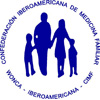Appraisal of saudi elderly health in rural areas: a national study
Resumo
Objetivos: To determine the most prevalent health problems among Saudi elderly living in rural areas, to evaluate whether the current health care meets the present and future needs of the elderly and to propose necessary recommendations to ensure the delivery of suitable health care for the elderly.
Metodologia ou Descrição da Experiência: This was a cross-sectional national survey of the Saudi elderly living rural areas. A cluster sampling technique was used to select participants (60 years old and above) from catchment areas of primary health care centers (PHC). The randomly selected elderly were contacted for personal interview and household visit. The subjects‘ physical, mental, social ,activities of daily living(ADL)and environmental health statuses were assessed using a structured data form by a trained research team. Blood, stool and urine investigations and electrocardiogram and X ray were done.
Resultados: Out of 546 elderly 59.5% were men, mean age 71.7+ 9.1 years. Of them 5.3% were never married, 20.1% were widows and 2.4% lived alone. The illiterate were 77.8%. A majority (73.6%) perceived their health as good while they had 2.8 health problems on average, and 79.8% of them take medications. The common problems were arthropathies (54.3%), visual impairment (47.5%), hypertension (43.2%), diabetes mellitus (41.3%), genitourinary diseases (24.1%), and hearing problems (23.6%) and low ADL. Intellectual impairments account for11.4% whereas 10.8% had symptoms suggestive of depression A 91.2% received care through a government PHC with average number of visits 11.5 a year and hospital admission rate of 28.7%.
Conclusão ou Hipóteses: The Saudi elderly living in rural areas had multiple physical ,mental and social problems. Consequently, we propose that a cost-effective national comprehrnsive program should be implemented that considers, among other things, the service, education, research and socio-cultural needs of the people. Primary health care team can play the key role in this matter.
Palavras-chave
Texto completo:
PDF (English)Apontamentos
- Não há apontamentos.
Este periódico é de responsabilidade das associações:
Apoio institucional:







